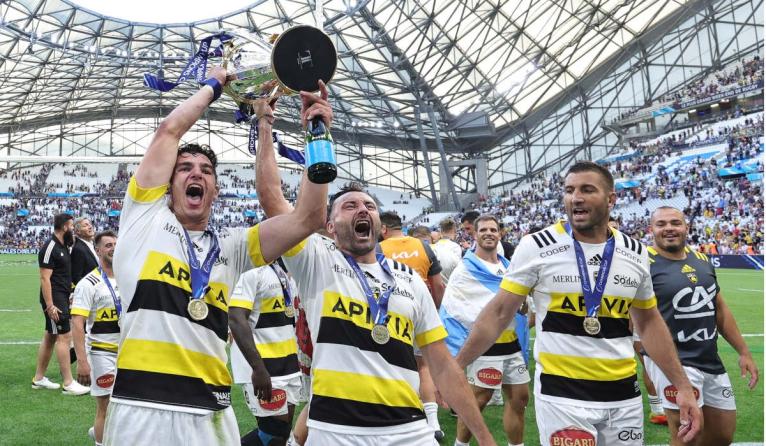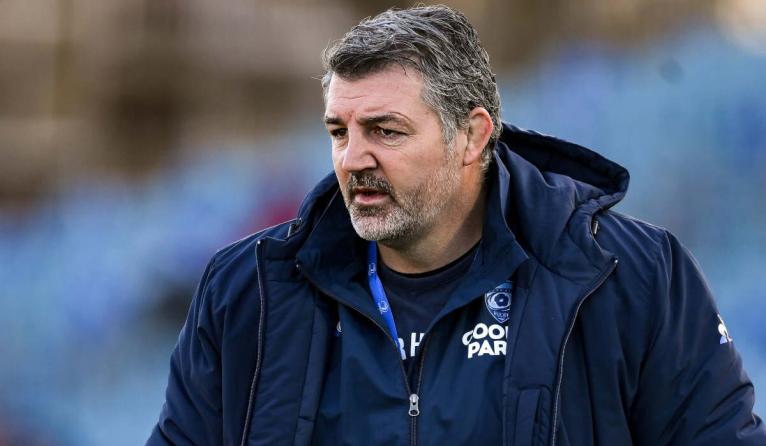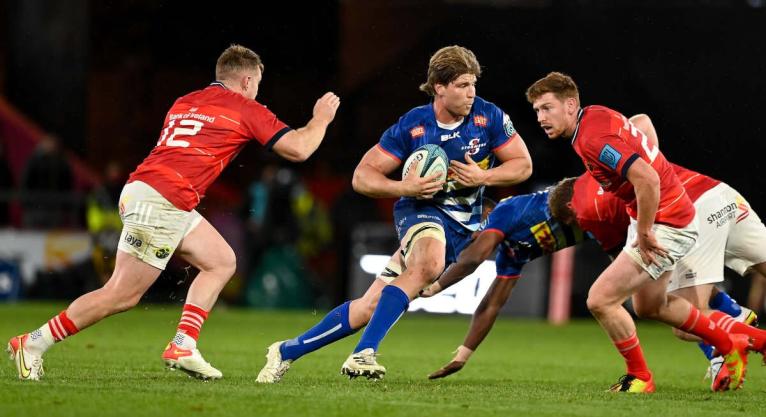René Bouscatel is adamant that the introduction of South African teams into European competition next season is a good thing. ‘It is in the interest of everybody, including the players, that they cross swords with teams they have never played against before,’ declared the president of the French Rugby League [LNR]. Why? Because according to Bouscatel, the former president of Toulouse, the presence of the likes of the Stormers and the Sharks in the Champions Cup and the Challenge Cup will ‘raise the level of all domestic competitions …and will also have a knock on effect on the national side’.
But not everybody sees it the way Bouscatel does, and none so more than many of his compatriots. He knows it, too, which is why last week he sent letters to all the Top 14 clubs urging them to get behind the idea of a South African tint to European rugby. ‘I’m counting on you to react positively and promote it to the media,’ he said, adding that the announcement comes at a time when the EPCR is ‘renegotiating with broadcasters in the French, British and international markets’.
But according to a report in Midi Olympique, the clubs don’t see it as the dawn of an exciting new era. They know why this idea has been foisted on them. Hell, Bouscatel admitted the reason in a recent interview. ‘The United Rugby Championship [URC] had declined a bit and was dominated by the Irish provinces,’ he said. ‘It is the Celtic sides that wanted the South Africans to take part in it so as to improve the standard.’
If the inclusion of South African sides in the URC has failed to raise the standard of Welsh and Scottish clubs then why should their presence in European competition give them a shot in the arm?

Second, is what’s good for the Celtic teams also good for the French? Do they need their standards improved? No, is the short answer. French club rugby has never been in better health, and the prospect of long-haul flights to South Africa next season has not gone down well.
Bouscatel remains defiant, accusing the malcontents of being ‘traditionalists’, the lazy insult habitually thrown the way of those who don’t toe the line of any radical reform. He added: ‘Is the Tour de France still the Tour de France when it starts in Copenhagen? Competitions evolve. A bigger and better European Cup is important.’
He didn’t elaborate on why it’s important, and why a competition that this season produced some brilliant rugby, would be the better for the inclusion of teams from another continent.
Furthermore, the Tour de France analogy is a weak one. Would the race organisers dare hold the mountain stage in the Italian Alps? Would they be so bold as to have the Tour denouement on the Mall in London? No. Everyone recognises that starting the Tour in Copenhagen, or Yorkshire, as happened in 2014, is a gimmick, a brief and harmless way of promoting the race and cycling in another country. The serious racing is always in France, and it’s the Pyrenees, Provence, the French Alps and the Champs-Élysées that give the Tour its unique identity.
I understand the financial aspect but I fail to see what this delivers for the Top 14 clubs other than a more complicated schedule.
Montpellier forwards coach, Olivier Azam
What gives the European Champions Cup its identity? The clue’s in the title. ‘I’m not favourable at all to the arrival of South Africa in Europe,’ said Vincent Merling, the president of La Rochelle, the Champions Cup holders. ‘Now that South Africa are in the Champions Cup it’s no longer the European Cup…I would say that it’s good for Celtic rugby who really want it….but I don’t understand it. We are in the process of losing our identity.You know the values of our club. This is totally against our way of thinking.’
Coaches have also expressed their disquiet at the inclusion of South African teams. Montpellier forwards’ coach Olivier Azam, who played in many European ties for Gloucester, was blunt in his analysis of the innovation. ‘They’re going to say it’s exotic but I’m someone traditional,’ he said. ‘I understand the financial aspect but I fail to see what this delivers for the Top 14 clubs other than a more complicated schedule. It’s not good news one year from the World Cup [and] I think it will get a lot of people’s backs up.’

Bouscatel’s dreaded ‘T’ word, was also cited by Clément Poitrenaud, the Toulouse backs’ coach, who with the club won the Champions Cup on three occasions. ‘I’m still a bit old-fashioned, and attached to some traditions, and for me it distorts this competition,’ he said. ‘It’s as if South Africa were entering the Six Nations Tournament.’
The response from the players, the few who have expressed an opinion, has been tepid. ‘The thought that the Stormers could be champions of Europe…I find that a little astonishing,’ said Racing 92 centre Henry Chavancy. ‘It risks distorting the interest a little bit, and the history of the competition.’
The France and Stade Francais second row forward Pierre-Henri Azagoh is torn. ‘It will be a good experience to go there and play against South African teams,’ he said. ‘But it is true that it is not next door, that will take time to get there.’
What’s the point of having South African sides in the European cup?’ The only point is financial. The environmental point has been neglected.
Julien Pierre, former France and Clermont lock
French clubs travel enough as it is. When Toulon fly to Paris to play Racing 92 it is a 1,000-mile round trip, and it’s nearly twice that distance if Toulouse are required to play a European tie in Scotland. Now they face trips of 11,000 miles there and back, as do their fans; but how many French supporters realistically are going to head south to watch their boys in Durban or Cape Town?
Very few, predicts Julien Pierre, the former France and Clermont second row, who in 2020 launched an an environmental agency called Fair Play for Planet, which assists sports clubs to improve their eco-performance. In an interview with Le Figaro newspaper last week, Pierre accused those behind the tournament’s expansion of being motivated solely by greed. ‘What’s the point of having South African sides in the European cup?’ he said. ‘The only point is financial. The environmental point has been neglected.’
Pierre wants a re-think about admitting South African sides and has called on those championing the expansion to think of the ‘consequences on the environment’ of all the extra air miles.

It’s a sensitive issue at a time when governments in the West are asking their people to do their bit to cut down on their carbon footprint; it won’t be a good look for rugby next winter if clubs are jetting around the world as households in Europe shiver in the grip of an energy crisis.
French rugby has little to gain from the inclusion of South African sides into European competition, but a lot to lose. South African teams would be at an immediate advantage in European competition because, like the Irish provinces, that would be their main focus each season. The Top 14 is far more competitive than the URC and, unlike every other domestic league involving the top tier Test teams, relegation remains a menace. South African teams, with their strength in depth, would arrive in far better shape for European fixtures than their French rivals.
It may also become more difficult for Top14 clubs to sign South African players. Montpellier, for example, have five on their books and Toulon four, but participation in the Champions Cup will bulk up the financial muscle of South African teams. As one South African rugby writer put it, the winners of the competition net ‘a cool €1million, which is about R17m, and that would be akin to wining the lotto for a SA team’.
The bottom line is that France doesn’t need South Africa in Europe. Its domestic league is in rude health and its national team is flying high
Given the choice, most French rugby fans would still prefer to see their club win the Top 14 rather than the Champions Cup; should the quality of the domestic league suffer as a result of the greater demands made on players in the revised European format it would not go down well. Clubs in France may be tempted to do as they once did in Europe, and treat it very much as a secondary competition. Between 2005 and 2020 there were never three French teams in the semi-finals of the Champions League but it has happened in 2021 and 2022.
France has not the same historical and cultural links with South African than Britain and Ireland; there is less affinity and fewer familial ties. France’s history is with the north of Africa. There is a sense among some in France that this is an Anglosphere decision and they are being forced to go along with it.
The bottom line is that France doesn’t need South Africa in Europe. Its domestic league is in rude health, and its national team is also flying high. After years of in-fighting between the clubs and the FFR, a vicious power struggle that dragged down the fortunes of the Bleus, French rugby is enjoying an unprecedented period of harmony. Might all that goodwill now go south?



like the Guy said - its a European cup not a western hemisphere cup - stick to your guns France and maintain natural order
Yes, all lovely arguments but… it’s the European Cup. You want SA sides? Fine, but it’s no longer the European Cup. And for whose benefit? Certainly not French and English sides. Create a world clubs championship if there’s a genuine need to help out SA sides.
I think GM put his finger on it when he said the French clubs don't want their Saffers moving back to their home clubs in SA. Rhule, Leyds and Liebenberg all started for LA Rochelle in Champions Cup final, for example. Without them and their NZers, LAR don't get near the knockout stages of the cup.
René you got it all wrong. What gave you the idea the SthAfcn's gonna lift your standards. They left our Super because we kept handing them their fat asses back in plaster cast. Truth .
Why not trying to develop further the other european nations? We can have, in 5/10 years, a real European Champions Cup. There are a lot of markets (and sponsors) to explore around Europe. If we bet in SA right now, there will only remain 3 countries with strong clubs in all Europe...
Perhaps the French have forgotten the resistance to their joining the then 4 Nations - and how long they took to get up to speed. Saffa teams in EU is for a bigger pie, only NZ (after recent Silver Lakes) doesn't need more cash. Have not heard of teams using anything but scheduled flights so nominal flights carbon footprint and if they do charter its a drop in the ocean. Broadcast rev is the biggest earner by far, more eyes means more cash, unions need the cash as still working out how to pay the bills after 25 years of largely amateur-ethos hangover. Also same time zones for travel, no jet lag for players - or viewers. Kapow!